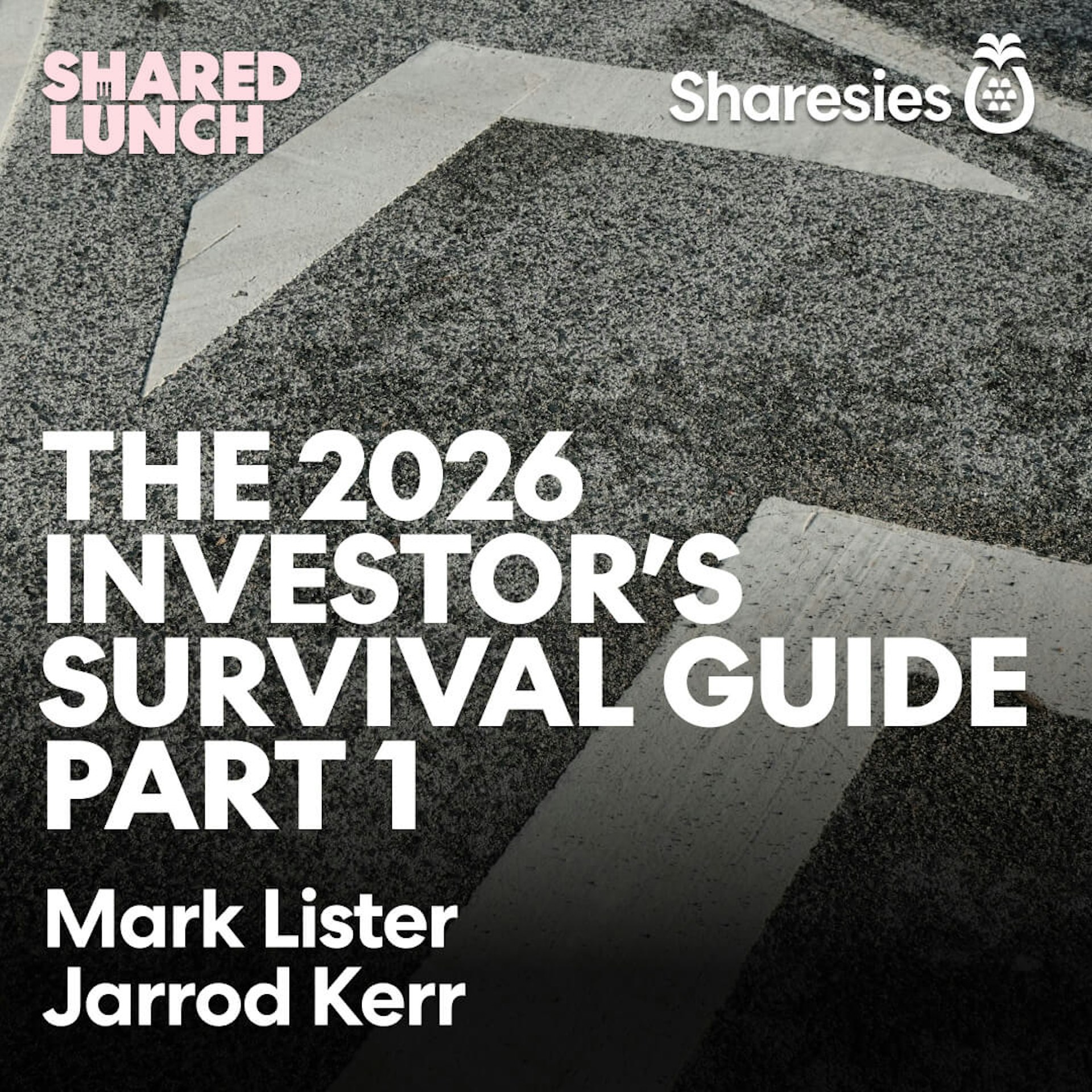Nine questions about bear markets, answered
Greg Fleming, Head of Global Diversified Funds at Salt Funds Management, recently shared his insights on bear markets on Shared Lunch—here are nine highlights.

In case you missed it, global equities are in a bear market. It’s a topic that’s dominated many headlines. Fair enough, too. Big drops in share prices can be unsettling for investors.
Greg shared his views on this particular bear and the species in general. Check out these bite-sized takeaways, or watch or listen to the replay.
How long do bear markets last?
Nine and a half months is the average length of the 26 bear markets since 1929 (compared to around two and three quarter years for bull markets).
We’re already six months into the current bear market. It’s too early to judge whether we’re in the closing months, or if it could drag on for longer.
When will this bear market end?
No one can say exactly when markets will recover, but one of the drivers will be falling inflation.
Some are seeing early signs of a peak in energy prices. That’d be encouraging, because it’s the flow on effects—like rising costs for transport and the goods on supermarket shelves—that have helped propel inflation to dizzying heights.
What caused this bear market anyway?
Markets often anticipate events before they’re felt in the economy. The current sell-off is partly due to concerns about economic recessions (particularly in the US). Markets are pricing in the risk of the event rather than the event itself. But a recession is still not a given.
Weren’t share markets breaking record highs just last year?
Markets tend to overshoot, on the way up and the way down. By the end of 2021, there were some expensive sectors in global equity markets. After this year’s swift and severe correction, company valuations (based on their share prices) are beginning to look more reasonable. For some companies (and sectors), the pendulum has probably swung too far to the downside.
How should I be feeling about all this?
Try not to despair. Seeing the value of your portfolio fall can be stressful, but bear markets also serve to uncover value. Prolonged sell-offs create opportunities to buy good assets for low prices. The investments you’re interested in are now cheaper. If you’re investing for the long term, sit tight, but look out for value when it comes up.
What should I do about a bear market?
Reassess how you feel about your holdings, but don’t abandon a company just because its share price has fallen.
If you liked a company during the bull market, and you believe in its business model and long-term growth potential, your view shouldn’t change just because we’re in a bear market now.
Are any investments safe from a bear market?
While no investments are recession-proof, so-called defensive stocks and sectors tend to hold up better in weaker economies. They generally involve goods or services that people don’t cut back on (like food, medicine, utilities and infrastructure), even when they’re tightening their purse strings.
What about the more exciting stuff?
Companies that are growth-oriented can also prove resilient in downturns—if they have pricing power. That means they can increase prices in line with inflation and make those prices stick. Desirable brands can have pricing power, as well as businesses with little or no competition.
What’s the takeaway from all this?
There were a lot of hyped investments that shot up last year, and they’ve now fallen—meeting some of the more boring assets on the way. It shows how important it is to resist FOMO, and check out investments for yourself. Don’t just believe the hype, because that hype may be engineered by someone who’s well positioned in that asset already.
Brought to you by Sharesies, with BusinessDesk
Shared Lunch is hosted by BusinessDesk journalists including Frances Cook.
Each week, we’ll alternate between an interview with a company leader and an industry deep dive.
Tune in on YouTube to watch or subscribe to the podcast on Spotify, Google Podcasts, or Apple Podcasts.
Ok, now for the legal bit
Investing involves risk. You might lose the money you start with. If you require financial advice, you should consider speaking with a qualified financial adviser, or seek independent legal, taxation, or other advice when considering whether an investment is appropriate for you. Past performance is not a guarantee of future performance. This content is brought to you by Sharesies Limited (NZ) in New Zealand and Sharesies Australia Limited (ABN 94 648 811 830; AFSL 529893) in Australia. It is not financial advice. Information provided is general only and current at the time it’s provided, and does not take into account your objectives, financial situation, and needs. We do not provide recommendations. You should always read the product disclosure documents available from the product issuer before making a financial decision. Our disclosure documents and terms and conditions—including a Target Market Determination and IDPS Guide for Sharesies Australian customers—can be found on our relevant NZ or Australian website.
Join over 930,000 people



